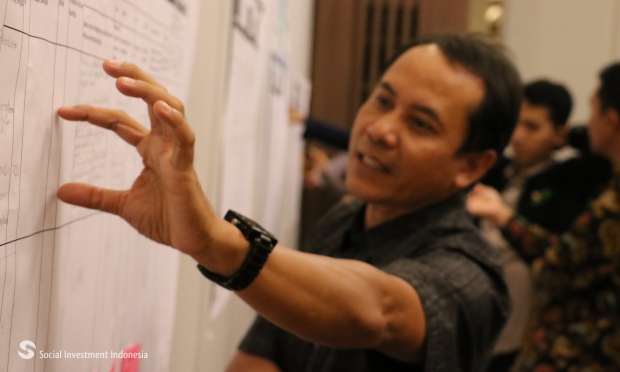Effective Community Investment (CI) takes time to understand, decode the complexities of the issue and find innovative ways to leverage business resources when offering support. Social issues are constantly evolving and the way resources are deployed should similarly be re-evaluated. As such, corporate community investment work should be dynamic.
The evolutionary journey of Citi’s Corporate Citizenship in their support of financial inclusion in Asia over the last few decades reflects three practices which contribute to effective CI.
• Get networked and listen to the stakeholders
Social issues are constantly evolving as factors impacting these issues are dynamic.
If your company has been supporting the same cause for a long time, ask if the issue has evolved and is it time to improve or shift the program in a different direction.
Here, stakeholders refer not only to the NGO practitioners but other stakeholders including academic thought leaders, regulators and multilateral institutions.
Citi’s investments and efforts to increase financial inclusion started from financial education. For the last 11 years, the Citi Foundation has successfully supported and led the Citi-FT Financial Education Summit. It has also supported the biennial Asia Microfinance Forum from 2006 to 2014.
Dialogue and debate during these two conferences with academic thought leaders, regulators, multilateral institutions and practitioners revealed some common trends.
The discussion was moving beyond financial education to building financial capability, i.e. to ensure that individuals adopt positive financial behaviours to facilitate asset building and preservation. There was increasing support for financial capability coupled with the push for increased access to financial products and services such as microfinance initiatives.
Citi’s active engagement with key stakeholders in the financial inclusion space has led to the creation of a new platform that reflects the integration of capability, access and other key elements that can deliver impact and scale in inclusive finance – the Asia Pacific Financial Inclusion Summit. This inaugural Summit is a consolidation of the Citi-FT Financial Education Summit and the Asia Microfinance Forum.
As Citi’s Asia Pacific Head of Corporate Citizenship Regina Seow explains, “This inaugural Asia Pacific Financial Inclusion Summit is a result of increasing feedback for a need to collaborate and coordinate among the various financial inclusion stakeholders.”
Citi Foundation, together with organising partners Financial Times (FT) and the Foundation for Development Cooperation (FDC), have leveraged valuable knowledge from their networks to create the agenda for this inaugural Summit. The discussions will include key measures required to accelerate financial inclusion, how these efforts achieve maximum impact and scale and how the private sector can play an increasingly important role in delivering financial inclusion goals driving overall economic progress.
• Drive innovation and request tangible results
Just as corporates are driven to innovate to be competitive and to meet the changing needs of their customers, a healthy CI programme is one that is constantly looking for better ways to deliver greater impact.
As previously established, both social needs and ways of meeting those needs are constantly evolving. An example is how financial capability programs have moved from classroom delivery to delivery via digital platforms over the last decade. Besides being more innovative, it is often more effective, accessible and affordable.
A simple text message with a reminder to save sent to a person on his/her simple android mobile, on payday results in more controlled spending than attendance in a financial education class that teaches the same principle of saving.
The lack of will for innovation should act as a red flag for CI programmes at risk of stagnating and becoming ineffective.
• Consider other business resources beyond financial contributions
Social issues are often complex and require a multipronged, multi-stakeholder approach. A way to create genuine impact in addressing social issues is the building of ecosystems that support and build the capacity of multiple stakeholders to address a problem. Facilitating a platform that pulls stakeholders together works to alleviate the problem of each stakeholder type working in isolation.
“With the Asia Pacific Financial Inclusion Summit, we hope that by providing this common platform, we will drive interactive discussions among stakeholders and promote synergy of initiatives. We are confident that this integration and exchange of views, knowledge, and best practices will contribute to furthering the financial inclusion agenda in the region”, said Regina. .
As part of past Citi-FT Financial Education Summit activities, Citi Foundation invested in understanding the impact such a platform had on attendees. Post event engagement was conducted to draw out outcomes such as new or improved activities resulting from learnings or new connections made through the Citi-FT Financial Education Summit. This important exercise will be continued for the upcoming Asia-Pacific Financial Inclusion Summit.
There is an expectation for companies today to participate in social and community development. Social issues are complex matters, often requiring numerous interventions to address a single need. The four walls of an office is an ivory tower from which effectively championing complex and evolving social issues cannot be done. Keeping in close contact with stakeholders is key to discerning how needs evolve over time and any effective community investment programme should reflect that dynamism.
Source: CSR Asia



